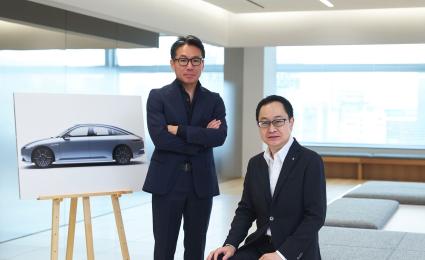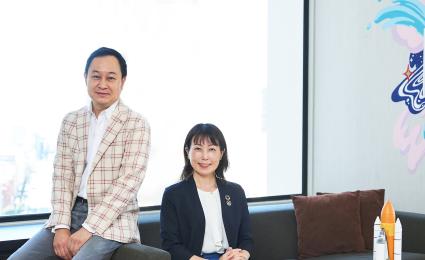Welcome to Roland Berger Japan. Our expert consultants have been delivering customized business solutions in Tokyo since 1991. Contact us now.


Diversity in Japanese Companies
Having its origins in Europe, Roland Berger has a culture that respects diversity and values the individual. Diversity is now a hot topic in all areas of society and business. However, there are many challenges to achieving it in Japan, where there is a strong tendency to expect people to be the same as others, the same as before.
So, what is the ideal form of diversity for Japan? How can organizations with both a high degree of cohesion and respect for diversity be achieved? Noted German philosopher Markus Gabriel, known for his book "Why the World Does Not Exist," and Yuzuru (Joe) Ohashi, Managing Partner at Roland Berger's Japan office, discussed the topic.
Markus is an internationally acclaimed philosopher and holds the Chair in Epistemology, Modern and Contemporary Philosophy at the University of Bonn. He is the Director of the Center for Science and Thought as well as Chairman of the International Centre for Philosophy NRW. He has been awarded numerous prizes, fellowships, and visiting professorships. His books have been translated into many languages.
Markus is academic director at THE NEW INSTITUTE (together with his co-director Anna Katsman). He is currently also an interim Program Chair for the 2022/2023 cohort of Fellows in the program “The Human Condition in the 21st Century”.
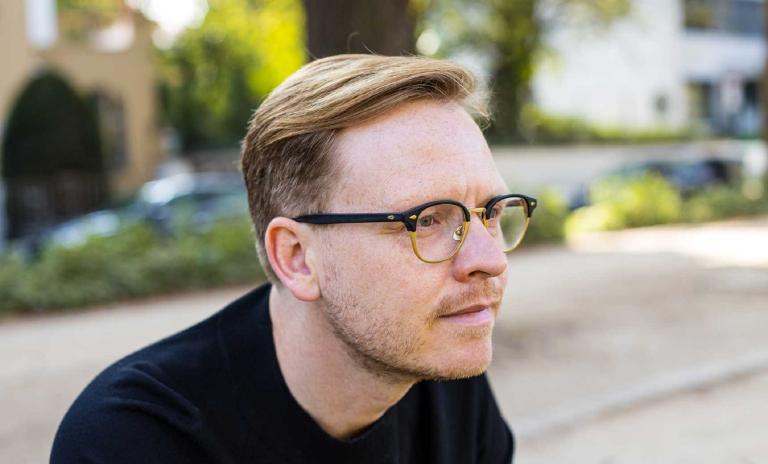
Yuzuru is a Tokyo-based Managing Partner at Roland Berger. He provides support to many business leaders – across manufacturing, high-tech, petrochemicals, IT and more – in maximizing success in their projects such as with growth strategies, overseas business strategies, M&A strategies, marketing strategies, business process reengineering, cost reductions and IT strategies.
Prior to joining Roland Berger, he worked for a multinational information technology company as well as for a digital business transformation company. He left to spend some time at a U.S. strategy consulting firm to further expand his expertise and later rejoined Roland Berger.
Yuzuru holds a Bachelor of Science degree in Computer Engineering from the University of California (San Diego, USA).
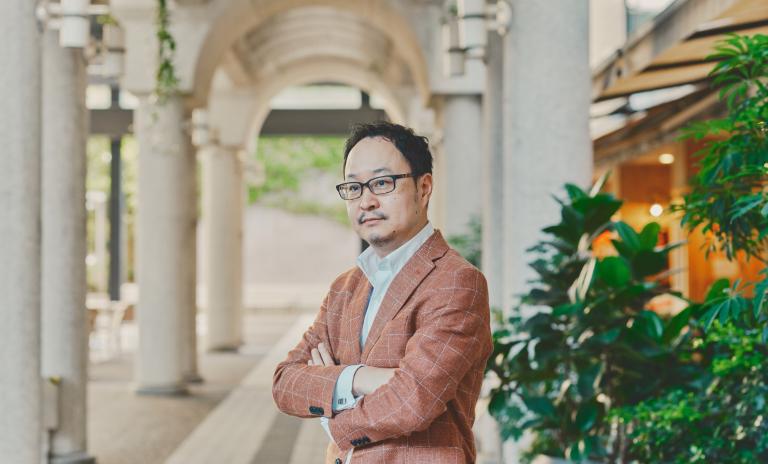
Identity and diversity
Ohashi: Thank you for your time today. I am the Managing Partner at the Japan office of Roland Berger. At Roland Berger, we value diversity, and the Japan office is no exception. However, here in Japan, I feel that society as a whole needs to discuss more and deepen our understanding of diversity. I hope that we can have such a discussion here today.
Gabriel: I know Roland Berger very well since it is a German company. I am also interested in Japan, so I was looking forward to talking with you today.
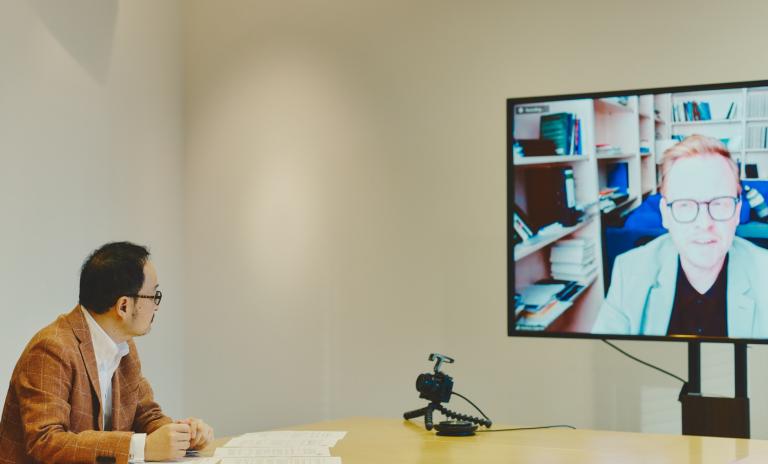
Ohashi: One of the reasons I wanted to discuss diversity with you is because I myself have lived in the interstices of diversity. I was born and raised in the United States, and I had an issue interpreting my own identity. I was uncomfortable with being categorized by others into various stereotypes. I did not want to be classified as Japanese or American, because I am just me.
Gabriel: One of the things I can say about identity from a philosophical perspective is that human beings are "self-interpreting animals." For example, the fact that I am 180cm tall is not open to interpretation, but the way in which I am a professor or philosopher is subject to my interpretation. I am a philosopher because I consider myself a philosopher. And each of these specific interpretations is one of our identities.
Now, the way in which you interpret being Japanese actually differs from your neighbors' notion of being Japanese, but we create the fiction that there is a single thing called being Japanese. The point is, however, there's no such thing. What there is, is a system of social economic transactions, the economy, and the nation-state. Nevertheless, everybody participating in the maintenance and reproduction of that system has the illusion that there's a single and all-encompassing identity of being Japanese, and they do things because they believe that they are Japanese. Humans are supposed to be free animals with diverse ideas, but this diversity is hindered by the various stereotypes created by human interpretations of identity.
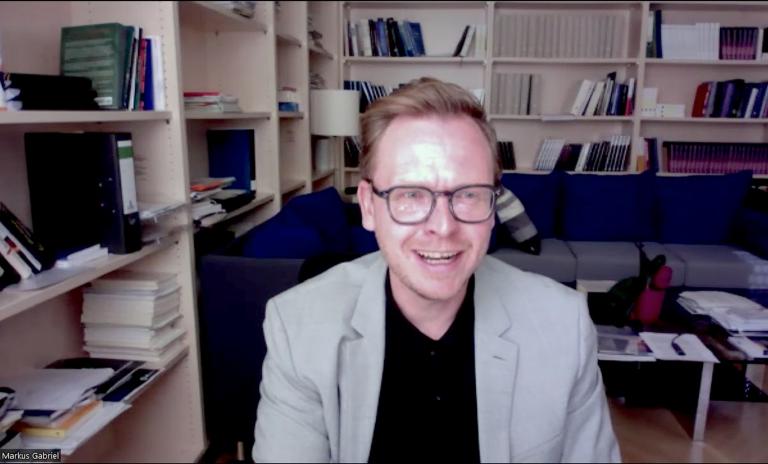
How can autonomous professionals unite?
Ohashi: Unusually for a management consulting firm, Roland Berger is managed in a dispersed and decentralized manner. Instead of a top-down approach with the head office sitting at the top of the pyramid structure, each office is allowed to think and act on its own. We consider this approach, which allows professionals with responsible freedom and diverse ways of thinking to cooperate and work together, to be one of the real strengths of our firm.
The challenge is, however, to keep a diverse collection of professionals together. In my definition, professionals are people who can think on their own and act on their own, and thus tend to disperse when left alone. I believe that we need some sort of discipline to bind us together.
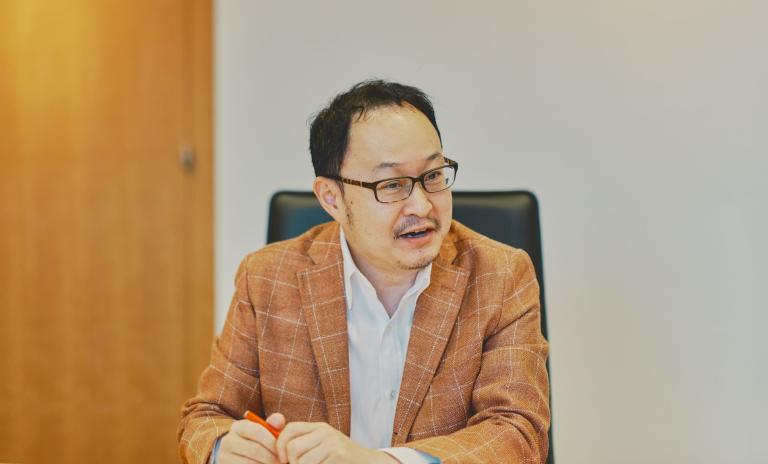
Gabriel: The way in which you characterize a professional corresponds exactly to the concept of an "autonomous agent," which is someone who does what they do based on a rule that they give themselves. Of course, even though the rules are self-imposed, there are common rules that must be followed in order to succeed.
Ohashi: Exactly. How can we unite such people?
Gabriel: One of the first things that can be said is that autonomous agents must not restrict the autonomy of the other agents. They should unite around something that can be shared, such as the philosophy and vision of Roland Berger, rather than having a structure where someone follows someone else. Immanuel Kant, the founder of German classical philosophy, called the place where autonomous subjects co-exist under the same purpose a "Kingdom of Ends," and that is what should be created.
For an organization like Roland Berger, where professionals work together, the common purpose can be business results and adequate compensation, but there must also be a purpose that can be expressed in terms of moral values to make the world a better place.
Business with moral values
Gabriel: Without the moral perspective of making the world a better place through business, competition between autonomous agents could start to develop.
Ohashi: In your book, you wrote about "universal moral value." What could that universal moral value be in the world of business?
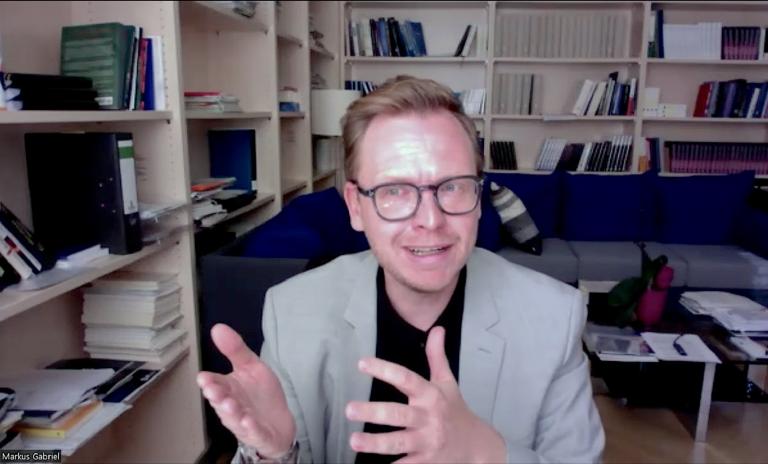
Gabriel: In my opinion, what is needed in the digital age, in which the world is largely interconnected, is not capitalism that maximizes shareholder value, but capitalism with universal moral values. The growing attention on sustainability is a typical example of moral values. For future success, morality and business need to coexist. However, diversity is very important for that coexistence.
Ohashi: I see. Are there any examples of businesses that are successful as businesses while operating with moral values?
Gabriel: Stanford University is a good example. Stanford University and its Graduate School of Business have been successful in business terms. It's one of the biggest landowners in one of the hottest markets on planet Earth and it has been rolling out a number of businesses as a property developer. Universities and graduate schools operate and make profits without receiving any public funding.
The teachers and professors who work there are a diverse group of professionals who uncover the truths that lie around the world, and they collaborate for the common purpose of "social benefit," which is close to the state of unity of professionals you are looking for. Diversity, universal moral values, and capitalism overlapping together will lead society in the future.
Japan needs "diversity of thinking"
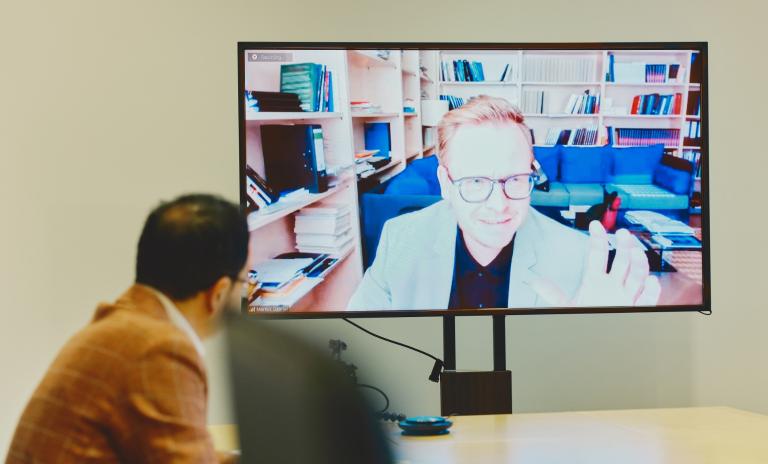
Ohashi: You have a deep understanding of Japanese society. How do you view the Japanese culture's strengths and weaknesses from a diversity perspective?
Gabriel: In the last 150 years, Japan has become the most literate country on Earth. It has a fairly low level of social inequality and is one of the world's top economies, despite being a small country. However, because of its successful history of modernity, it became conservative. We are now experiencing the most rapid socioeconomic transformation in human history due to technological developments, and conservatism alone cannot keep up with this drastic change.
Ohashi: Some people in Japan are so deeply bound up in their past successes that they tend to avoid changes. When companies think about next year's budget, they tend to think in terms of growth compared to last year, instead of thinking from zero. They cannot discuss new ideas. I think that is the barrier that Japanese culture and society are facing. Instead of thinking about the future that we believe is right, we often think about the rightness of not making mistakes.
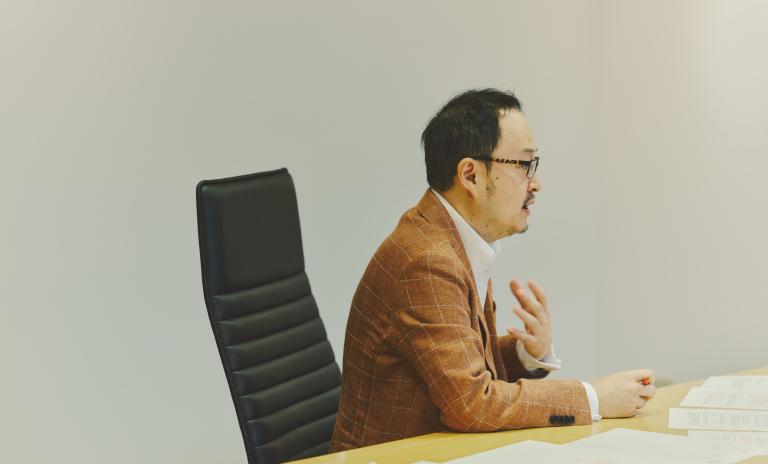
Gabriel: You need to have both a very strong sense of what needs to be conserved and the readiness to jump into a completely unknown future. Diversity is also important. However, it makes no sense to imitate the U.S. approach to racial and religious diversity. Their situation is too different from that of Japan.
Ohashi: Yes, I think what Japan needs is diverse thinking.
Gabriel: I think Japan has too little thinking objectively about itself. People are stuck with the idea that Japan is fine as it is. You should have someone who can see Japan from the inside and from the outside in the discussion.
Ohashi: How do we achieve that? Japan is so homogeneous and empathetic that there are proverbs such as "A nail that stands will be hammered down" and "There is no fear of crossing on a red light if everyone crosses together." Although it may have been an important part of the culture during the "Japanese economic miracle," which is the period of rapid economic growth that Japan experienced from the 1970s to the 1990s, it is now a stumbling block in today's society. How can we overcome this situation?
Gabriel: How about having a diverse board of visionary people in your organization? Imagine you're producing electric bicycles and you have a particular question, say, "How can we make it lighter?". Then the visionary might present a completely different idea, saying that there are likely to be more suitable vehicles for getting around. This could introduce highly creative thinking into the company. Companies and organizations can change from there.
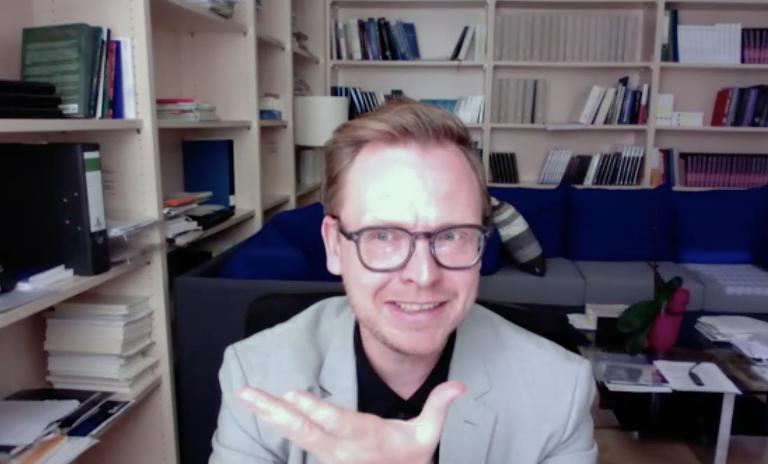
For future-oriented discussions
Ohashi: I see. Finding those visionaries might be difficult, especially in Japan. What are the traits that we can look for?
Gabriel: My visionary is not necessarily someone like Steve Jobs but someone who sees things from a different perspective. By having a sociologist or a political scientist on your project, for example, you can see and think about things differently.
This discussion itself is also creating an opportunity to talk with me as a philosopher, in order to gain a new perspective. Japanese companies should have more opportunities like this. I believe that innovative ideas can be achieved through a series of diverse discussions about the shared goal that professionals have in common, which is to build a better society.
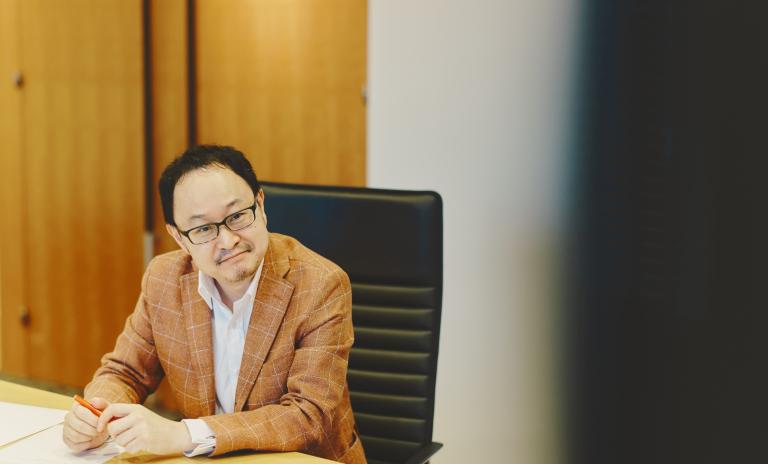
Ohashi: Many people in Japan believe that Japan is still doing fine and do not realize that we are starting to be forgotten by the other parts of the world. We need a wake-up call by visionaries before it is too late. I also think the balance of conservatism and innovation is something quite important. You cannot have innovation driving everything forward. You need something to make the idea coming out of innovation sustainable as well.
Gabriel: Conservatism is important for real innovation since sustainability comes from a conservative perspective. So-called "innovative companies" in the U.S. find it difficult to grow sustainably. I believe this is because they do not have morals to uphold and live in the present by making use of innovative ideas and technologies.
On the other hand, Japan, where conservative thinking still prevails, does have the potential to grow sustainably. You can still sell the narrative that Japan has a great opportunity. You can say that precisely because we are conservative, we can be more future-oriented. Japan will then become more of a role model for others.
Ohashi: Because we have achieved it in the past, we should be able to do it again, right?
Gabriel: Yes. In the past, Japan was future-oriented. It is Japan's tradition, a good Japanese concept. That is why Japan can tell a story where you can be proud of your traditions because they were future-oriented. Such strong narratives are needed for change.
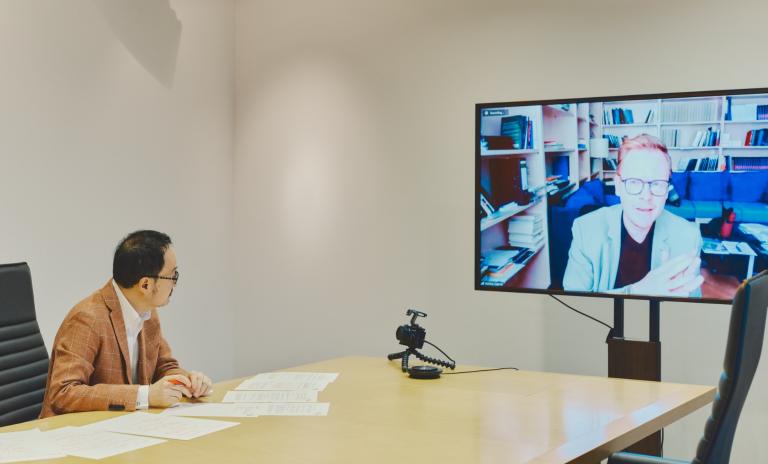
Ohashi: Right. By deepening discussions with visionaries and expanding the diversity of ideas and values, Japan could restore such a future-oriented mindset. Thank you for an interesting discussion today from the perspective of philosophy and ethics. I am looking forward to our next discussion.
Gabriel: Please do create more opportunities for discussion like this in Japan. See you again in Japan or Germany!

